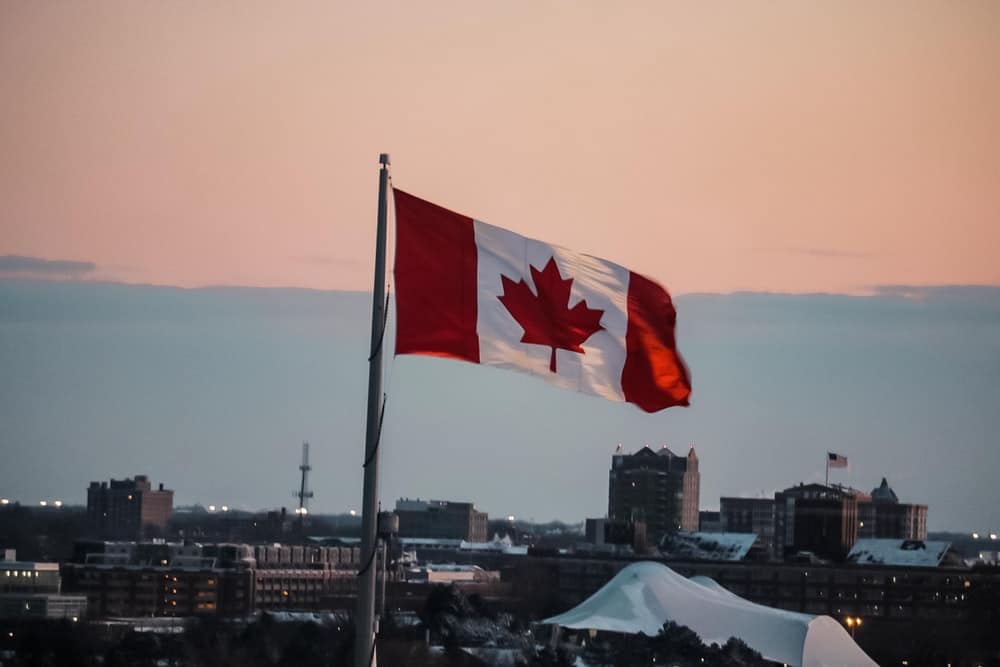
As the light at the end of the COVID-19 tunnel draws closer and closer, it’s time to start thinking about your next LGBT-friendly holiday destination – and there’s one country that easily beats the competition.
In 2020, Canada topped the Spartacus magazine Gay Travel Index, with the outlet naming it as its top queer-friendly destination.
The Gay Travel Index, published every year since 2012, ranks countries based on the degree to which they champion LGBT+ rights, and on how safe they are for LGBT+ people to travel to.
Coupled with its easy-to-navigate visa system (eTA Canada), it’s not difficult to see why Canada continues to be an extremely popular destination.
Canada leads the way in LGBT+ rights
The yearly Spartacus report informs potential travellers about the state of LGBT+ rights in 202 countries, and uses a points system.
Canada topped the index with a total score of 12. While Malta, Sweden and Austria also scored 12 points, Sweden and Austria received a negative point for still legally allowing conversion therapy, Canada scored neutrally, with legislative efforts to ban the practise ongoing.
Canada also scored highly for permitting adoption for LGBT+ couples, and for having equal rights on marriage and registered partnerships.
British Columbia became the first Canadian province to allow both joint and step-child adoption by same-sex couples in 1996. In 2011, Nunavut became the final province to legalise same-sex adoption, making it legal across the country.
In addition, religious influence on legislation concerning LGBT+ rights in Canada is limited.
The Canadian Charter of Rights and Freedoms explicitly states that religious freedom “is subject to such limitations as are necessary to protect public safety, order, health or morals and the fundamental rights and freedoms of others”.
The local population is generally positive about queer rights, and the country’s major cities have large LGBT+ communities.
Toronto’s Church and Wellesley neighbourhood in particular is known for its many bars, cafés and shops with a predominantly LGBT+ population.
Every year, Toronto hosts Pride Week. The heart of the LGBT+ community in Montreal is Le Village, a district in the city centre with many bars and restaurants and a lively nightlife.
In Vancouver and Ottawa – the country’s capital – you can find so-called Gay Villages, where the LGBT+ scene is very active.
The USA ranked 30 places below Canada
In the Spartacus report, different categories have different point scores, and a country can also score negative points, which are subtracted from their total score. Negative points are only awarded to countries that don’t even have elementary rights for LGBT+ people.
Countries that do have some very basic rights but lack important ones seen in higher-scoring countries get zero points.
The United States was ranked joint 31st place in the Gay Travel Index , despite being Canada’s direct neighbour.
Whereas Canada scored a perfect three in anti-discrimination legislation, the USA is stuck at a measly one. Worse yet, the USA received several negative points: for transgender rights, religious influence and murders. In other words, the USA still has a lot of catching up to do.
Strictly religious countries such as Chechnya (202, last place), Saudi Arabia (199) and Malaysia (190) were found at the very bottom of the index.
Very few of these countries even managed to score a single point across any of the categories, and instead received several negative points.
Travelling to Canada – how to apply for a visa
LGBT+ travellers making Canada their next holiday destination will need an eTA or a visa.
Most travellers choose to apply for an eTA Canada, avoiding the cumbersome visa application procedure.
The eTA is applied for online with a digital application form. Filling in the form takes only a few minutes.
After paying the application fee, the form is processed. In general, the application is approved within three days and the eTA is delivered by e-mail.
The eTA is valid for five years from the date of issue and can be used for multiple trips. An eTA will only expire before that if the passport used to apply for it expires prematurely.
Always check that the passport details you entered when applying for the eTA are still up-to-date. If you change passports, you will need to apply for a fresh eTA as well.








